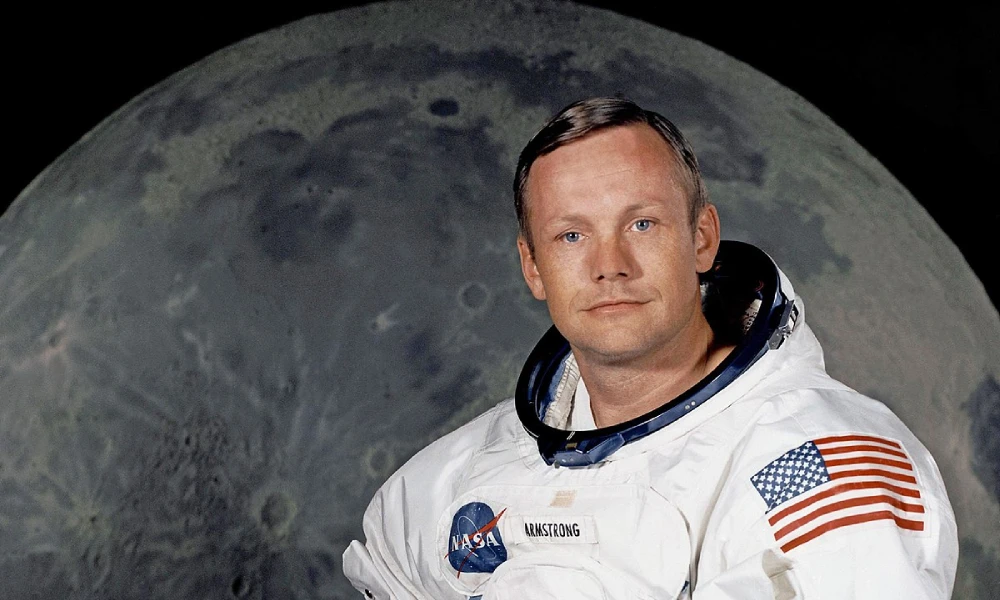Neil Armstrong, the first human to set foot on the Moon, was born on August 5, 1930, in Wapakoneta, Ohio. From an early age, Armstrong was fascinated by flight, earning his pilot’s license before he could legally drive a car.
After studying aeronautical engineering at Purdue University on a Navy scholarship, Armstrong served as a naval aviator from 1949 to 1952, flying 78 combat missions during the Korean War. Following his military service, he became a test pilot for NACA (NASA’s predecessor), flying over 900 flights in a variety of aircraft.
In 1962, Armstrong joined NASA as an astronaut. His first spaceflight came in 1966 aboard Gemini 8, where he performed the first docking of two vehicles in space. However, the mission was cut short due to a critical system malfunction, which Armstrong skillfully managed, safely bringing the spacecraft back to Earth.
Armstrong’s defining moment came on July 20, 1969, as commander of Apollo 11. As he stepped onto the lunar surface, he uttered the now-famous words: “That’s one small step for [a] man, one giant leap for mankind.” This historic achievement made Armstrong a global icon overnight.
After Apollo 11, Armstrong largely withdrew from public life. He left NASA in 1971, taught aerospace engineering at the University of Cincinnati for nearly a decade, and served on corporate boards. He also participated in NASA accident investigations, including the Apollo 13 review and the Space Shuttle Challenger disaster commission.
Despite his fame, Armstrong was known for his humility and privacy. He rarely gave interviews and was selective about public appearances. When he did speak about the Moon landing, he often emphasized the collective effort of the thousands of people who made it possible.
Armstrong received numerous honors throughout his life, including the Presidential Medal of Freedom, the Congressional Space Medal of Honor, and the Congressional Gold Medal. He was also decorated by 17 countries and was made an honorary fellow of various scientific and engineering societies worldwide.
In his later years, Armstrong became more vocal about space policy, advocating for continued space exploration and expressing concern about the decline of America’s space program. He testified before Congress and served on space advisory committees.
Neil Armstrong passed away on August 25, 2012, at the age of 82, following complications from cardiovascular procedures. His death was mourned worldwide, with tributes pouring in from fellow astronauts, world leaders, and ordinary citizens inspired by his extraordinary journey.
Armstrong’s legacy extends far beyond his lunar footprints. He symbolized human curiosity, courage, and the drive to explore the unknown. His achievement not only marked a milestone in space exploration but also demonstrated the potential of human ingenuity and determination. Neil Armstrong remains an enduring inspiration for future generations of explorers and dreamers.

